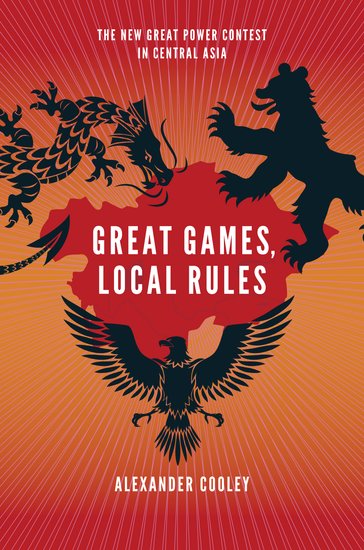By Alexander Cooley
As NATO leaders gather in Chicago to garner international support for an Afghanistan drawdown and stabilization strategy, they should also consider the overlooked toll that the campaign has taken on the adjacent Central Asian states. Western security assistance has made the Central Asian states more authoritarian and more corrupt, while these trends are only likely to deteriorate as the drawdown of US and ISAF forces accelerates.
From the very outset the United States treated Central Asia instrumentally, as a region in support of the coalition effort in Afghanistan. The US established supply bases in Karshi-Khanabad (K2) in Uzbekistan and at the Manas airport, near Kyrgyzstan’s capital of Bishkek, and secured overflight rights and refueling agreements from all of the Central Asian states. US defense officials also launched a host of cooperative programs to provide training and resources for counterterrorism and border management for Central Asian security services.
Growing tensions about Western regional motives — prompted by the Color Revolutions that replaced pro-Kremlin regimes in Georgia, Ukraine and Kyrgyzstan — came to a head in the summer 2005 after the Uzbek government killed hundreds of anti-government demonstrators in the eastern city of Andijon. As US officials joined international calls for an investigation, Uzbekistan restricted US military operations and soon after, in July, formally evicted US forces from the K2 facility.
The K2 eviction prompted Western officials to accept the Central Asian governments’ insistence that engagement on security issues was now antithetical with promoting political freedoms. Thus, when the regime of President Bakiyev in Kyrgyzstan in 2007 escalated its attacks on journalists and political opponents, US officials toned down their criticism fearing eviction from its remaining vital Manas base. International human rights organizations now complain that US diplomats won’t even raise rights-related issues with certain Central Asian governments for fear of jeopardizing these precarious security arrangements, while EU officials, having lifted a post-Andijon sanctions regime against Uzbekistan in 2009, now seem satisfied to address human rights issues within special dedicated EU-Central Asian dialogues rather than at higher levels.
On the economic front, large sums of money poured into the region in an attempt to secure these Central Asian basing access and transit rights, but these payments usually have lined the pockets of narrow private interests and the region’s elite. For example, between 2003 and 2011 the US Pentagon’s Defense Logistics Agency awarded nearly $2 billion in sole-source fuel contracts for its Manas operations, most of them no-bid extensions, to two fuel companies registered as offshore companies with no public corporate profiles. A US Congressional investigation of possible corruption in these contracts concluded that the Pentagon and the State Department, “turned a blind eye to glaring red flags.”
The issue of possible systemic corruption in Western logistic contracts grew even more pressing after the US in 2008 established the Northern Distribution Network (NDN), a set of air, rail, and road routes that span the Eurasian landmass before entering Afghanistan through Central Asian border points. Designed to offer alternatives to the embattled Pakistan supply routes that later became untenable as US-Pakistan relations deteriorated, the NDN was predicated on providing Central Asian governments with “economic incentives” to support the Afghanistan effort and the surging of US forces.
In fact, the NDN has encouraged more local rent-seeking than it has generated new entrepreneurship or increased regional trade. Central Asian officials have collected a windfall in fees through local subcontractors and demands for informal payments at the border, while the amount of commercial goods procured locally has fallen far short of the levels US logistics officials had hoped.
With planning for the NATO withdrawal now underway, these problems are only like to be magnified. As Western militaries prepare to pull out heavy equipment, they expect Central Asian agencies and border officials to extort even greater payments as reverse transit takes place through the NDN network.
Politically, too, Central Asian governments are demanding higher profile partnerships and official visits and a total of cessation of Western political criticism. And as a seeming precondition for securing the government of Uzbekistan’s acquiescence to the NDN the Obama Administration in January of this year lifted a ban on providing military assistance and its financing to the Uzbek government, opening the way to transfers of material that is as likely to be used to target domestic opponents as it is for its publicly stated purpose of guarding these supply lines.
Accounts of the Afghanistan campaign already point to a host of Western strategic missteps and missed opportunities. A fuller reflection on the last eleven years should include the perverse twist about how in its almost single-minded effort to promote state-building, political tolerance and good governance in Afghanistan, just next door the West has left a trail of repression, graft and unfulfilled commitments to Central Asia’s fledgling civil society.
Alexander Cooley is the Tow Professor of Political Science at Barnard College, Columbia University and author of Great Games, Local Rules: The New Great Power Contest in Central Asia, forthcoming with Oxford University Press (July 2012).
Subscribe to the OUPblog via email or RSS.
View more about this book on the ![]()
![]()





[…] will US troop withdrawal from Afghanistan affect Central Asia? permalink buy this book read more Posted on Monday, September 17th, 2012 at 6:30 am […]